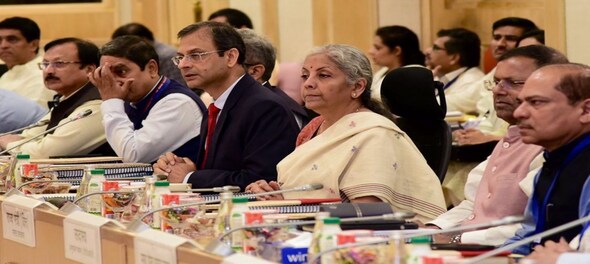
Yet another GST Council meeting has come to an end. This was the 52nd meeting and a strong sense of déjà vu is now creeping into these meetings. They have the customary modification in rates, clarifications issued, some expectations met or even surpassed, and invariably, disappointment in several quarters.
But such Council meetings held in regular intervals are essential because they serve a greater purpose —it gives an opportunity to the states to express their views. These meetings are also essential to keep the wheels of cooperative federalism well oiled.
While, there have been quite a number of recommendations in the latest meeting, which tried to clarify several of the previously debated issues.
Food & Travel
The 52nd Council has recommended that rates on food preparation of millet flour be reduced to nil if sold other than in pre-packaged and label form and 5 percent when sold in prep-packaged and label form. This is like the treatment extended to other food products. As a measure to boost tourism it has been recommended that foreign going vessels be exempted from IGST when they convert to a coastal run. Very many foreign cruise vessels run on the western coast —from Mumbai to Goa and Kochi. This should cut down the cost of travel.
Alcohol
In a move which the finance minister described as ‘ceding space’ to the States, it has been recommended that extra neutral alcohol (ENA) used for manufacture of liquor for human consumption be kept outside GST —this even though the Allahabad High Court had ruled that ENA was very much within the ambit of GST. While the revenue implications are likely to be minimal, one can find fault on the principle adopted.
The Council could have recommended a broad band within the rate should be fixed by States. Further this could trigger demand from States to similarly keep other items too out of GST — or at least all other items which go in the manufacture of liquor for human consumption which is exclusively in the domain of State’s.
ENA when used for industrial purposes would be subject to a GST rate of 18 percent. End use exemptions are always difficult to enforce, and the enforcement agencies will have to be on their toes to ensure there is no diversion. GST on molasses, another input which goes in the manufacture of liquor for human consumption continues to be under GST albeit at a reduced rate of 5 percent down from the earlier rate of 28 percent.
Services
There has been a recommendation also regarding rates relating to various services — services of water supply, public health, sanitation, waste management provided to government authorities which are being exempt, while job work services for processing of barley (another ingredient for the manufacture of liquor for human consumption) are to attract a rate of 5 percent as against 18 percent.
The council has recommended that bus transportation services supplied through electronic commerce operators be eligible to pay their GST by utilising the ITC which previously they were not able to as they were under Sec 9 (5) of CGST Act.
Corporate Guarantees
The issue of corporate guarantees extended by directors, presently the subject of several notices issued by the department was also clarified; the recommendation that there should be no levy if there is no consideration will be welcomed by the corporates. However, where there is a corporate guarantee provided between related parties the council has recommended that the value would be 1 percent of the guarantee offered or the actual consideration whichever is higher. This will need an amendment in the rules which has also been recommended.
There have been recommendations which should help exporters. The first being to permit export remittances received in special INR Vostro account as consideration for supply of services, to be considered as export of services. And the second, permitting suppliers to special economic zones to do so on payment of integrated tax and claim refund of tax paid. This will help in utilisation of credit.
Appellate Tribunals
Another very positive step is the recommendation regarding appointment of president and members of the GST Appellate Tribunals. And significantly the Council has also recommended that an advocate with ten years’ experience in litigation would also be eligible for appointment as judicial member. Hopefully this should put at rest the disquiet among the legal fraternity. The tenure of the President and Members has been decided to be up to a maximum age of 70 years and 67 years respectively. The setting up of the GST Tribunal has been badly delayed -hopefully these recommendations will speed the process.
The online gaming industry was hoping for relief. This was not to be. During the FM’s press conference post the meeting it was reiterated that 51st Council’s recommendation will hold and that the Centre will not interfere in the investigations and notices being issued by the investigative agencies. Thus, while there is finality in the matter, it is bound to be challenged. The entire matter-whether, they should be any distinction between games of skill and chance, the value to be adopted and the period for which the notice can be issued, are bound to enter protracted litigation.
All in all, the Council’s meeting was one more step towards achieving the goal of having a 'good and simple' tax.
—The author, Najib Shah, is former Chairman, Central Board of Indirect Taxes & Customs. The views expressed are personal.
Read his previous articles here
(Edited by : C H Unnikrishnan)
First Published: Oct 10, 2023 12:08 PM IST
Check out our in-depth Market Coverage, Business News & get real-time Stock Market Updates on CNBC-TV18. Also, Watch our channels CNBC-TV18, CNBC Awaaz and CNBC Bajar Live on-the-go!



